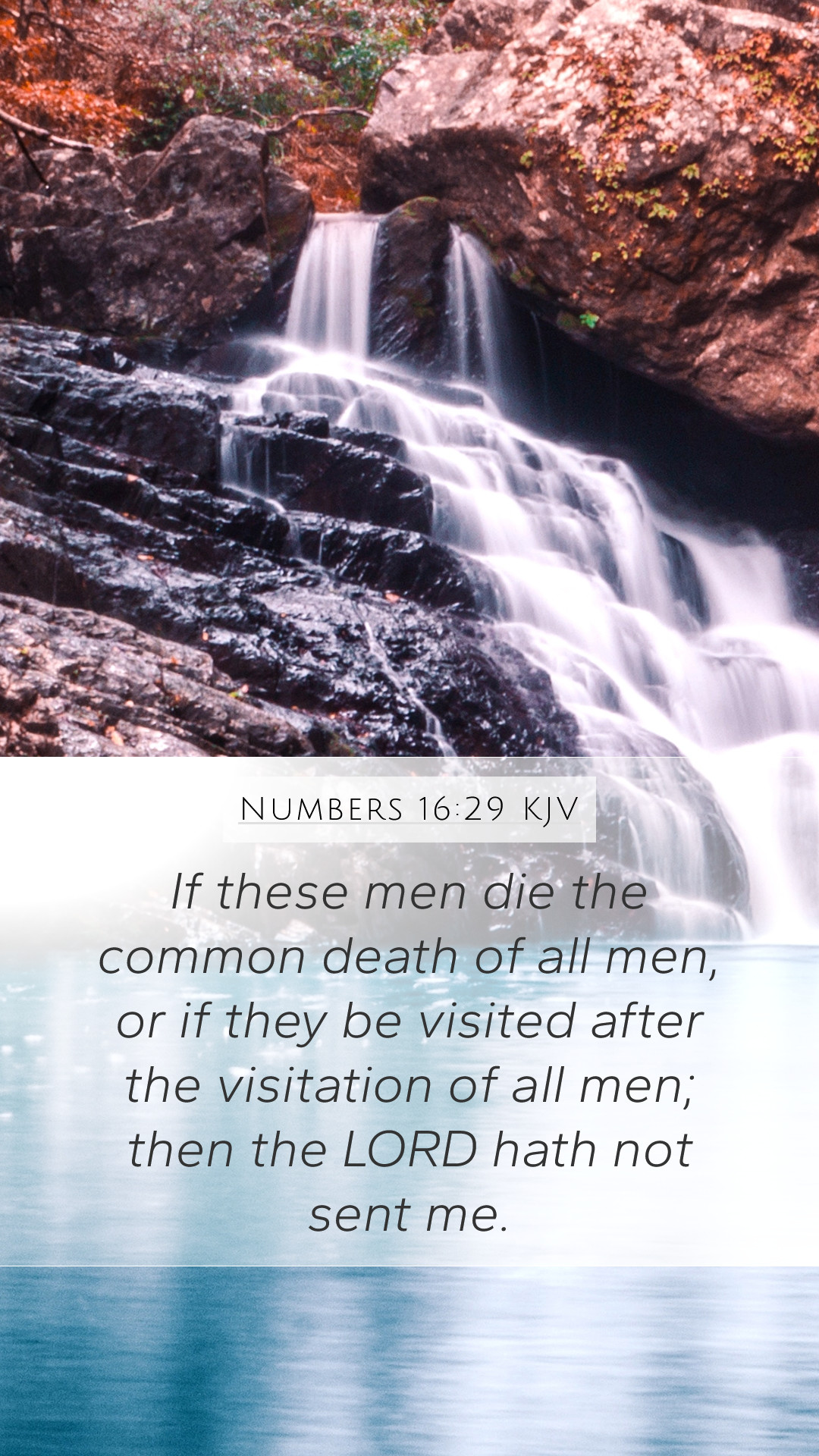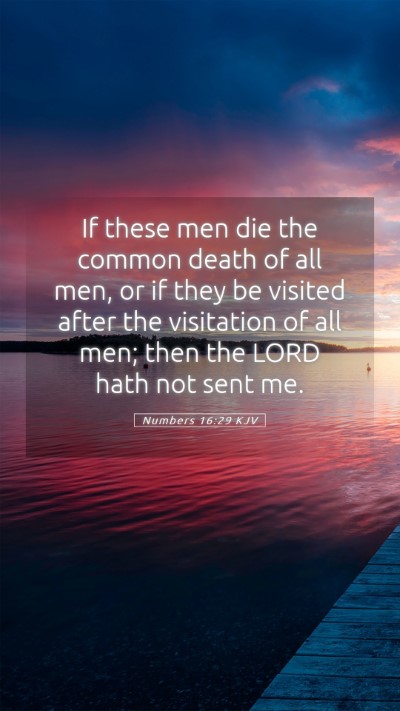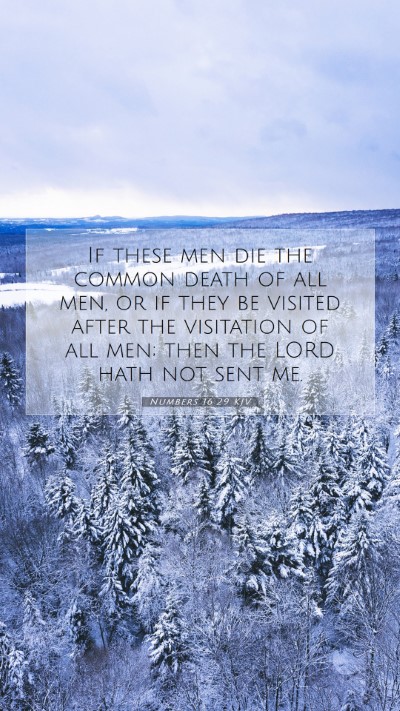Understanding Numbers 16:29
The verse Numbers 16:29 states:
"If these men die the common death of all men, then the Lord hath not sent me."
Bible Verse Commentary and Explanation
This verse is situated in a narrative that addresses the rebellion of Korah and his followers against Moses. The core meaning centers on the distinction between the natural consequences of death and divine judgment, a theme thoroughly explored in public domain commentaries.
Matthew Henry's Commentary
Matthew Henry emphasizes the seriousness of Korah's rebellion against God’s appointed leader, Moses. He notes that Moses calls on God to affirm his authority by stating that if the rebels die a common death, they were right in their challenge; however, if a unique fate befell them, it would demonstrate God’s judgment:
- Rebellion and Accountability: Henry highlights how the death of these men as a sign of divine disapproval serves to establish accountability for rebellion against God.
- Divine Authority: He points out that God’s endorsement of Moses is crucial for the Israelites, asserting that Moses’ leadership is divinely ordained.
Albert Barnes' Commentary
Albert Barnes provides further insight by examining the broader implications of death and divine intervention. He suggests that the extraordinary events described in this chapter, particularly the ground swallowing the rebels, serve as concrete evidence of divine action:
- Judgment vs. Natural Death: Barnes reflects on the clear message that not all deaths occur as naturally intended; some are direct consequences of rebellion against God's commands.
- Significance of Signs: He emphasizes that these signs were meant to instill fear and respect for God’s authority amongst the Israelites.
Adam Clarke's Commentary
Adam Clarke offers a historical context to Numbers 16:29, exploring the nature of God’s signs in the Old Testament:
- Testing the Spirit: Clarke suggests Moses’ claim challenges their spirituality, affirming whether their actions align with God’s will.
- Lesson on Spiritual Leadership: He highlights the lesson about following leaders who are divinely chosen, reminding readers about the significance of spiritual discernment.
Key Themes and Insights
The following themes emerge from the analysis of Numbers 16:29:
- Divine Judgment: The distinction between a natural death and a divine judgment reinforces God's sovereignty.
- Leadership and Authority: This verse underlines the importance of Divine leadership in guiding God's people, showcasing the gravity of rejecting God’s chosen leaders.
- Accountability: It stresses the consequences of rebellion against God, encouraging humble obedience amongst the people.
Cross References
For deeper understanding and cross-references, consider the following verses:
- Numbers 16:2-3: Details Korah's uprising.
- Exodus 16:28: God's response to rebellion in the wilderness.
- Numbers 26:9-10: Further consequences for Korah's lineage.
Application of Numbers 16:29 in Daily Life
This verse presents significant insights for modern readers. It advises on several vital life applications:
- Respect for Authority: Emphasizes the necessity of respecting God-appointed leaders in various spheres of life.
- Self-Examination: Encourages individuals to examine their actions and intentions, ensuring alignment with divine principles.
- Awareness of Accountability: Reminds believers that they are accountable for their beliefs and actions, especially regarding disobedience and rebellion.
Conclusion
In conclusion, Numbers 16:29 is rich in meaning and context, presenting significant truths about God's authority, divine judgment, and the seriousness of rebellion. Engaging with this verse through scripture analysis and biblical exegesis allows for profound Bible study insights, enhancing understanding Scripture and the practice of applying biblical teachings to daily life.


